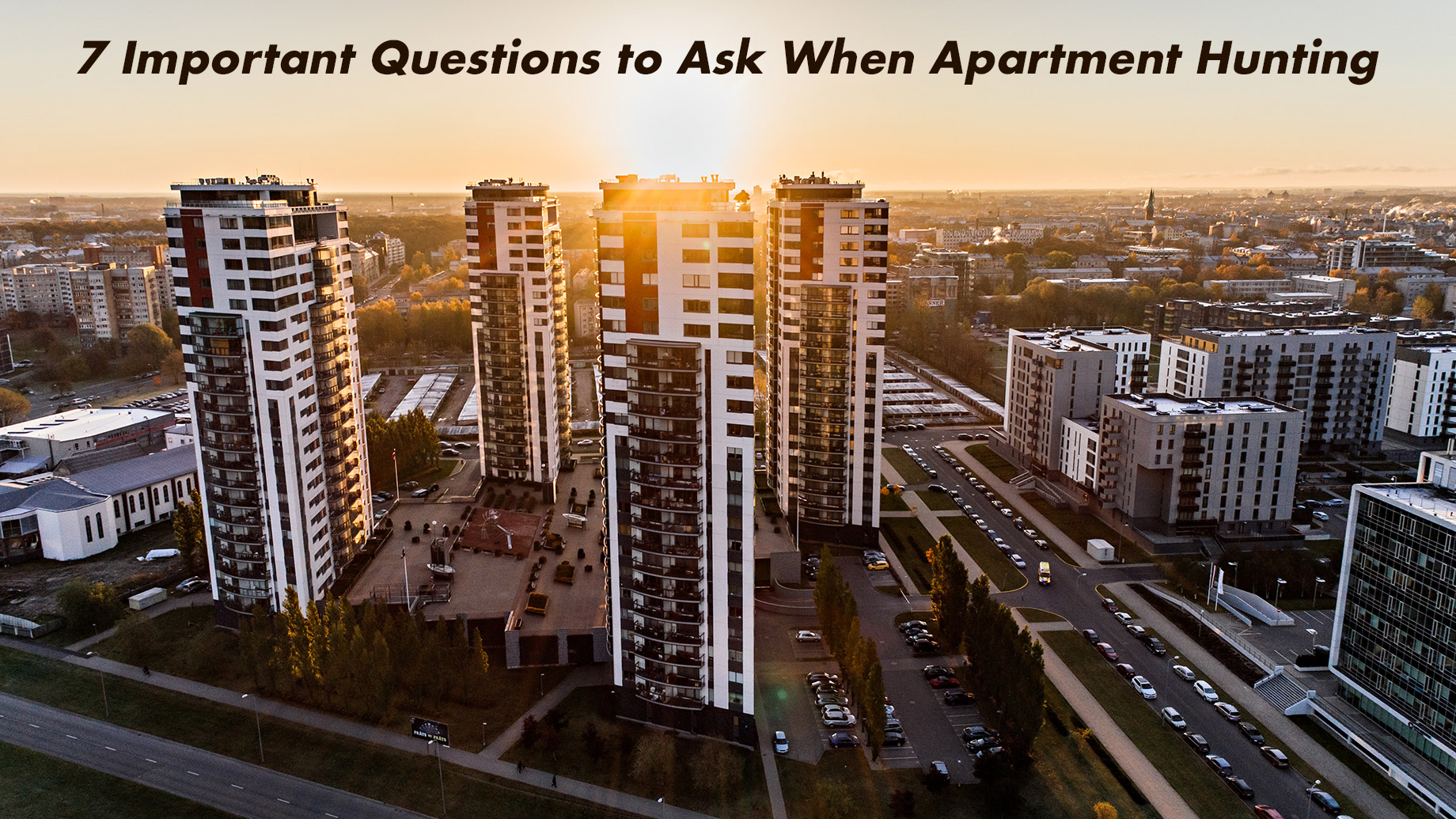
Are you searching for an apartment? Are you wondering how you can make a smart decision?
A real estate agent or building manager may be able to give you important information regarding available units in desirable buildings. You do, however, want to make sure you have important information in order to be certain you’ll be happy with your decision.
Here are some critical questions to ask when apartment hunting.
1. What Is the Deposit Amount?
Apartment hunting can be an exciting time. You’re getting a new place, interesting surroundings, and a chance to develop new relationships.
Searching for apartments, however, also comes with its stresses, not the least of which is the money you’ll be spending. And one of the most critical expenses you’ll have is your deposit.
Generally, the amount you’ll be spending on an apartment is equal to a single month’s rent. Many landlords will require a deposit as well as your first month’s rent before you can move in.
The exact amount of your security deposit can vary based upon a number of factors. These include your state, your credit score, and the type of apartment you’re renting.
Your landlord must put your security deposit in an account that earns interest. When you move out of your apartment, your landlord will inspect it for damages. As long as nothing is found, you may get your security deposit back.
You won’t want your security deposit to come as a surprise when you’ve got your heart set on a new place. Make sure you’re clear about the payment expected when you move in. You’ll also want to know whether or not it’s refundable.
2. Do I Need Renter’s Insurance?
Some landlords may require tenants to get renter’s insurance. This can cover the cost of any goods that are stolen, damaged, or destroyed. Any damage to the structure or building itself will get covered under your landlord’s insurance.
The average cost of renter’s insurance is around $14 per month. Factors that could influence the exact cost include your state, credit history, and any previous claims you may have filed.
3. What Changes Can I Make to The Apartment?
Find out what changes you’ll be allowed to make in your apartment once you move in.
Most landlords will allow you to make minor changes. These could include painting, changing light fixtures, or changing out an appliance like a microwave.
You may not, however, be able to make more permanent adjustments like changing the door locks or installing a security system. If you want to make larger changes to your apartment or landscape, make sure you’re landlord is okay with them before you agree to rent the place.
4. How Long Is the Lease, and Can I Renew It?
A typical apartment lease is around a year. Yet other options are sometimes available.
You may, for example, be able to get a slight discount on your rent if you’re willing to sign a longer lease. Or you may be able to rent on a month-to-month basis if you give adequate notice before you leave. You’ll want to make sure your landlord is okay with a shorter or longer-term agreement if that’s your plan.
If you don’t like to move around a lot, ask your prospective landlord or real estate agent about lease renewal. Find out if this will be an option, and if there is a likelihood of a rent increase at that point. You’ll also want to know if there’s anything else important you’ll need to know about lease renewal.
5. What Repairs Will the Landlord Perform?
Landlords are generally responsible for repairs that make a space “habitable.” These include making sure the plumbing, heating, and electricity are functioning. If there is flooding, a pest infestation, or a clogged pipe, your landlord should attend to it.
You’ll want to know who to call in case a repair is necessary, and how quickly you can expect the maintenance team to make a repair. If your landlord uses an online portal, you’ll know that any repair requests will get quickly documented.
6. What Is Parking Like?
This is a tricky one for folks looking to move into urban areas. While a convenient lifestyle is exciting, parking can be tricky. One of our favorite apartment hunting tips is to ask current residents about the parking situation.
There may, for example, be an alternate side of the street parking rule that means you’ll need to move your car every other evening. This could be tricky if you also use public transportation for work. It could even mean that you’re often parking several blocks away from your home, requiring a lengthy walk on most evenings.
If you’re building has an option to purchase or rent a parking spot, you’ll want to find out how much it is and where the spots are. The investment may be worth your time and sanity. If you have a car, parking problems could also be a deal-breaker when it comes to renting in a particular building.
7. Are There Any Utilities Included With My Rent?
Rent can be high in certain areas, but you’ll also want to think about your monthly utility costs. Heat, hot water, and electricity can add up to a monthly expense you weren’t planning on.
Before renting in a certain building, find out which utilities are included. The deal may be better than you thought.
Questions to Ask When Apartment Hunting
Finding a great apartment can seem like a daunting task. With a little research, however, you can have the pad of your dreams in no time. Knowing the right questions to ask when apartment hunting can save you time, money, and a lot of stress.Don’t stop getting smart about your living space now. For more great advice on home and style, read our blog today.